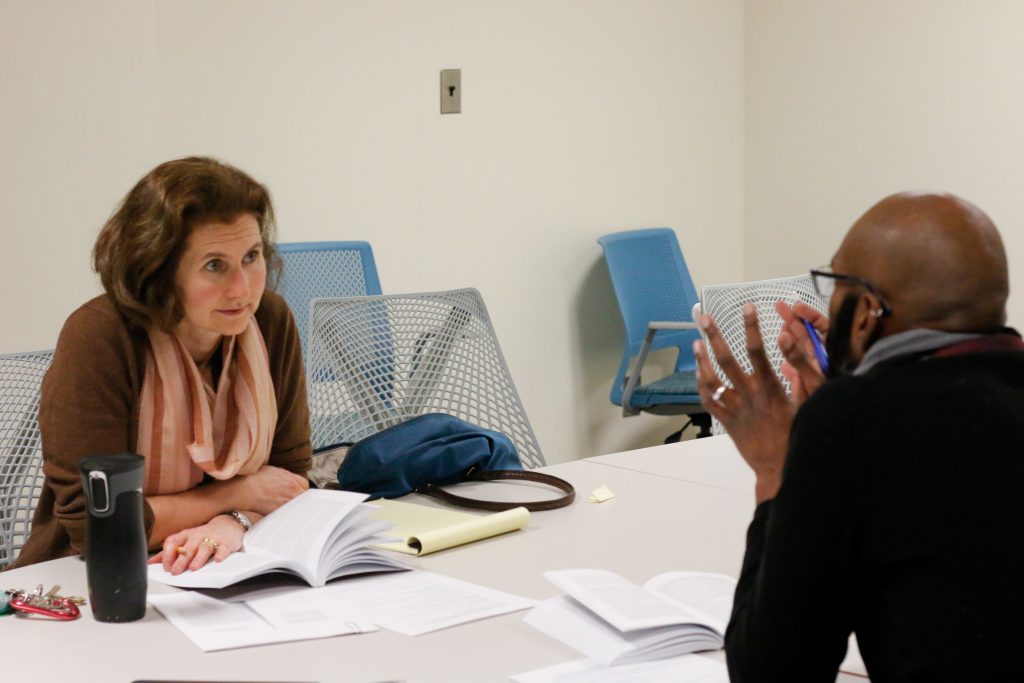
Gathered at the Human Rights Institute (HRI), Binghamton University faculty members gathered for their monthly reading group meeting to discuss race in the history of international human rights and humanitarian law.
The reading group, which is open to faculty members from all departments, aims to encourage interdisciplinary perspectives and generate new ideas. It is run by the HRI, which the University formed last January, bringing together members of the human development, English and sociology departments to create an interdisciplinary faculty working group. Alexandra Moore, co-director of the HRI and BU professor of English, said she organizes the reading groups to help faculty and graduate students with their research.
“One of the things we wanted to do was common readings because often we’re interested in the same issues, but we come at them with different disciplines,” Moore said. “We’re usually locked into our own way of thinking, but we share interests in international race and human rights laws.”
The reading group is currently taking an in-depth look at a book titled “Sovereigns, Quasi Sovereigns, and Africans: Race and Self-Determination in International Law,” which discusses the history of international law, particularly in Africa and as it applies to Namibia, spanning from European colonization and up to Namibian independence in 1990.
“[The reading group] has been super great,” Moore said. “Even in just the first 45 minutes of talking, we were able to see things that we wouldn’t have seen otherwise, which is exactly what’s supposed to happen.”
According to Moore, the reading group’s meetings typically have 10 to 15 faculty members in attendance, including Chandiren Valayden, an assistant professor of human development.
“I’m always learning from [Moore], and reading together is a great way to learn from each other,” Valayden said. “Instead of staying in your own little silo, you get to read a little bit outside of it and hear others’ ideas.”
Last semester, the institute brought an outside scholar to come to the reading group and talk about their work. The group read the texts together and held workshops covering certain topics, followed by a discussion of how each faculty member might teach the subject to a class.
The reading group is just one of the HRI’s efforts to involve students in research. It recently launched a freshman research program, which will introduce first-year students to foundational histories and concepts, alongside research methodologies drawn from social sciences and the humanities in human rights.
BU will also be offering a new graduate program next fall for a Master of Science in Human Rights, focusing on community engagement and advocacy.
According to Moore, the group’s conversations are helpful for faculty members and graduate students who may be studying something similar to the book topics, and the discussions could be useful for dissertations or research projects.
“The institute came out of the interests of the faculty, and the idea is to promote and support interdisciplinary and transdisciplinary research in human rights,” Moore said. “We want to look for a way to partner with community groups outside of the University, have a public face as well and to create more opportunities for students.”


